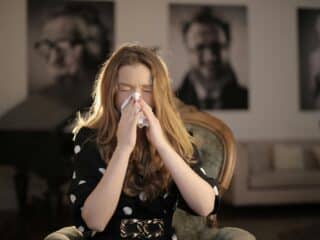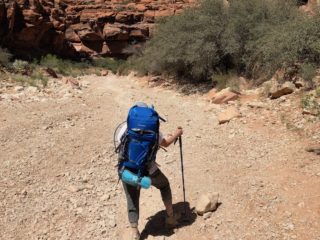
Actually, that last step may be a problem. As pure as the water in a stream or pond may appear, it could, and usually does, pose a serious health risk. Untreated water often contains dangerous microorganisms and parasites. Many inexperienced first-time campers do try their luck with such water. They reason that if it can’t hurt them when they take a dip and inadvertently drink in a little, it can’t hurt them at all. It’s incorrect logic, though. There’s a big difference between ingesting the smallest quantities, and actually drinking mouthfuls.
Many learn the hard way about staying safe in the great outdoors. If you want you would prefer the =easier way, you need to take steps to protect yourself in everything you do when you go camping.
Get shots before you leave
If you’re not on top of all your shots, it helps to get updated — for hepatitis A, meningitis, whooping cough and tetanus. You should talk to your doctor about what exactly you need, depending on the destination that you have in mind.
Be careful with anything unpackaged that you eat or drink
If you’re camping out, you want to pay particular attention to the ways in which you store your food. To begin, you should always put everything away in a waterproof cooler. Not only will it keep contaminated water from getting in, it will make sure that everything is stored at a temperature low enough to discourage bacterial growth.
It’s actually a good idea to use two separate waterproof coolers — one for cooked foods, and other the other for raw foods. If you can possibly manage it, you should use a portable, battery operated refrigerator (it should be okay as long as it doesn’t run off your cars battery). All food should be stored at the correct temperatures; while many people tend to take shortcuts here, it’s never a good idea. Wash your hands before you handle food.
Purify your water
From protozoa and bacteria to amoeba and viruses, water can contain a bewildering range of harmful microorganisms that quickly sicken. A number of methods exist to help purify water prior to use, each one offering a different level of effectiveness against microorganisms.
Boiling helps protect against most, but not all kinds of microorganisms, as long as you perform the boiling method correctly. While leaving water to boil for a full minute tends to be okay, in most cases, three minutes is a better idea, especially at altitudes over 6,000 feet.
Using filtration systems such as the Berkey is another option. Depending on the model (see here for Berkey water filter info), filters are able to screen out nearly every microorganism. Since boiling can be a hassle out in the wild, using a no-power filtration system and can be particularly convenient.
Other methods can be suitable, as well, such as UV filtration systems and chemical tablets
Plan for protection from exposure
Risk of exposure can be real. To those who are unaccustomed to the dangers of the outdoors. It can come in the form of heat-related illnesses, cold-weather, sunstroke, sunburns and hypothermia. Exposure can also affect family pets. It’s important to learn about the breed pet that you have ahead of time.
Planning for protection from insect bites
Whether it’s your family or your pets, mosquito bites are always a risk. It’s important to frequently check your pets for ticks, and to quickly remove them. Family, you should wear long-sleeved clothing, shoes and socks at all times, yourself. It helps to buy insect repellent for all exposed skin areas, and to reapply frequently.
Finally, time spent outdoors is likely to include unfamiliar activities that are potentially risky. You need to make sure that there are no careless mistakes made. Fuel-burning heaters should never be placed inside tents for fear of fires or carbon monoxide poisoning. All physical activity should include adequate protective gear. You should always pack a first-aid kit that includes medications for injuries and exposure to poisonous plants.
Walter Adams is an American writer, blogger and travel journalist. As a journalist he has worked in news wire services, magazines, newspapers and radio. He has a B.S. in Languages and Linguistics, with a focus on Political Science from Georgetown University in Washington, D.C. He has taught German and history in the Commonwealth of Virginia. He has worked in Latin America, Asia and Europe.







1 comment